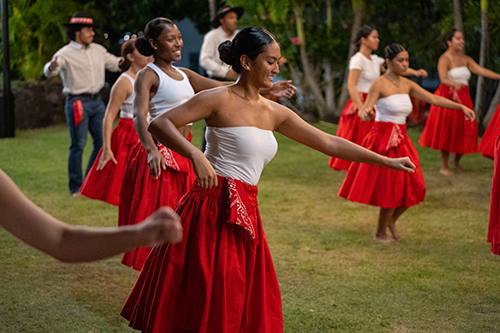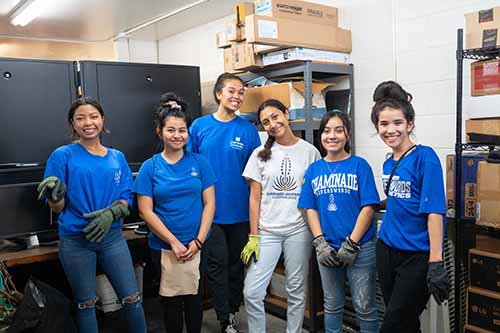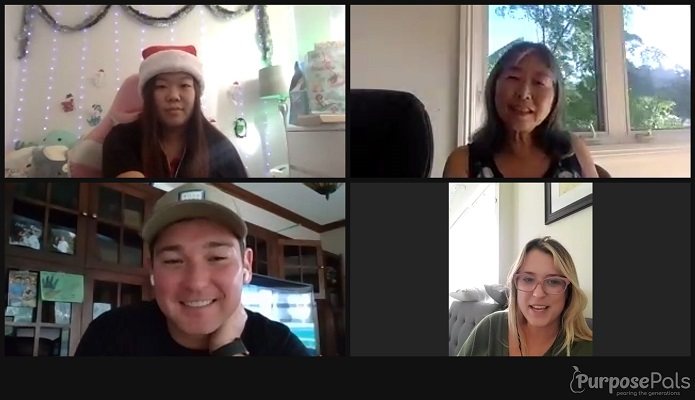Events celebrate campus diversity
Bring your appetite, warns Andrew Ancheta, referring to the 5th Annual Taste of Culture. This food-like festival celebrates the cultural diversity of our campus by coming together as a community and bonding over food.
“This year will be the first time since the pandemic that our students can have a choice to cook—rather than order from a restaurant—their specialty dish,” says Ancheta, activities coordinator for the Office of Student Activities and Leadership. “Each club will be responsible for at least a dish and maybe a dessert and drink.”
Inspired by the United Nations Educational, Scientific and Cultural Organization’s (UNESCO) Cultural Week, Chaminade’s inaugural event of the same name provides an opportunity for the campus community to deepen their understanding of cultural diversity. Hawai‘i has long been considered a melting pot of different cultures and ethnicities, as confirmed by an analysis released by WalletHub that ranks Hawai‘i first in the nation for racial and ethnic diversity.
“On the subject of diversity, Chaminade’s Office of Student Activities and Leadership offers more than 30 active student clubs,” says Chaminade President Dr. Lynn Babington. “Whether you are looking for a group to celebrate your cultural heritage, share your passion for different hobbies, or just looking to meet new people, it’s easy to find your ‘ohana while at Chaminade.”

The Taste of Culture will run April 12, from 6 to 8 p.m. at the Zuberano Courtyard. Participating clubs include the Chaminade Student Programming Board (Egyptian Lemonade); Student Organization of Latinx (Enchilada Verde); Office of the President (Corned Beef and Cabbage); The Filipino Club (Lumpia, Cascaron, Puto); Ka Ipu Kukui Me Ka‘ie‘ie (Kalua Pig, Lomi Salmon, Po)i; Lumana’i O Samoa; Restauranteers Club (Japanese Takoyaki); Micronesian Club; and Hallyu (Korean) Club (Meat Jun).
A spring tradition at Chaminade, the April 14 International Extravaganza is also part of Culture Week. Student-led performances of dance and song highlight the evening’s program at the Sullivan Library Lawn from 6 to 10 p.m. (or until performances conclude). Dinner will be served at 6 p.m., with performances starting at 7 p.m.
Five cultural clubs with 150-200 participants will share their talents with the campus community. Organizations will include the Filipino Club, Ka Ipu Kukui Me Ka‘ie‘ie (Hawaiian Club), the Student Organization of Latin X, Lumana‘i O Samoa (the Samoan Club) and the Micronesian Club.
“Because of the pandemic sidelined these student activities, we’re having to rebuild these events and remind current students about them,” Ancheta says. “There’s a high interest among students, and they really work hard, practicing at least three times a week for two to three hours.”
Other scheduled events during Culture Week include an “Identity Panel” presented by the Marianist Leadership Center on April 10, from 12:30 to 1:30 p.m., and an Open Mic on April 12, from 12:30 to 1:30 p.m. Both will take place on the Zuberano Lawn.
“Student clubs and organizations drive these events,” says Ancheta, who will oversee all the programming logistics. “This is the first year that we’ve combined all these events into a single week.”










